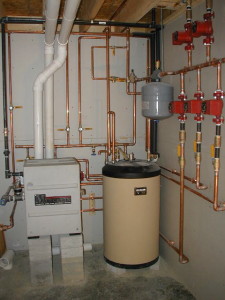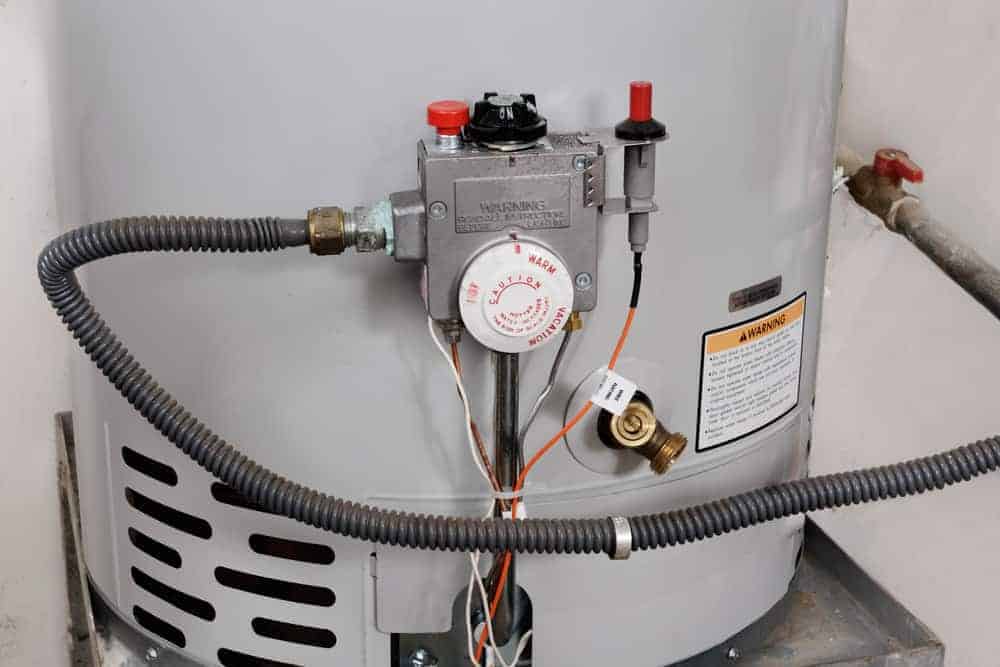Required Guidelines for Homeowners Handling Broken Hot Water Systems
Required Guidelines for Homeowners Handling Broken Hot Water Systems
Blog Article
Just how do you actually feel in relation to Maintaining & Draining a Water Heater?

Whether it lies in the basement or a separate area, broken hot water heater can create tension. A typical unit holds 80 gallons, so an overnight leakage will certainly bring about a flood. This leads to major building damages with soaked walls and floors. Besides, having no hot water supply is likewise bothersome. If you are handling these concerns, bear in mind of the following:
Shut Off Source Of Power
Before calling the plumber, shut off a gas water heater by turning the temperature dial. This is typically situated on top of the thermostat. Switch off the circuit breaker if you have a version that runs on electric power. This will protect against electrocution, specifically if there is a leakage as water is a conductor. Typically, the burner shuts off when the water hits a details temperature. But with a damaged container, it might malfunction. Cutting it off guarantees you stay risk-free.
Cut Off the Cold Water Supply
Cut off the tanks touch water supply from the source. When your tank is in great problem, the cool water quits loading up when the container is complete. If you can not locate it or reach it, you have to transform off that primary water supply line outside your property.
Call the Plumber
After doing the first 2 safety steps, you have to call your plumber to come right away to repair a burst water heater. There are typically indicators that your aging water heating system has sediment accumulation in the inside.
Don't wait on significant flooding to call the plumber. By then, you will have to spend even more to restore your residential property. Instead, as quickly as you spot these indicators, have a specialist pertained to check your hot water heater thank. Normally, water heaters have a lifespan of concerning 8 to 12 years. With routine inspection and also maintenance, you can lengthen its life.
Clean Up Building
After calling the plumber, document damage by taking notes as well as pictures so you can declare your property owner's insurance policy. Remove any kind of standing water to prevent mold and mildew and mold development. If you have a submersible water pump, make use of that to drain the water.
Remember, if you notice any concerns with your water heating system, call the pros right away. You can not take this issue lightly due to the fact that a damaged thermostat can increase water temp to a dangerously high degree, leading to accidental burns.
Whether it is situated in the cellar or a separate area, broken water heating units can cause stress. Before calling the plumber, shut off a gas water heating unit by turning the temperature level dial. After doing the very first 2 security actions, you have to call your plumber to come right away to deal with a burst water heater. If you have a submersible water pump, use that to drain pipes the water. Keep in mind, if you discover any kind of problems with your water heater, call the pros right away.
Is My Water Heater Broken?
The Water Heater is Old
No appliance will last forever. This includes a home’s water heater. During its lifespan, residents are going to face a situation where a new water heater installation will be necessary. The biggest problem with this is that most people are not sure when their water heater expires. Not knowing this can lead to serious risks if the unit begins to act up due to old age.
Most makes and models of water heaters will last between eight and 10 years. While 10 years is the age when water heater replacement is highly recommended, the need to replace the unit may occur before this time or after. If the unit doesn’t show any symptoms of a problem, it is a good idea to replace it at the 10-year mark (from the manufacture date).
Some of the symptoms that indicate a new unit is needed include rusting, leaks, noises, and a failure to heat up the water. Also, note that not all units have a 10-year life expectancy. The main exception to this rule is that a gas unit will last for six to eight years.
Rusty Heater Inlet Valve or Water
While steel is the strongest material on earth, it does have a weakness – rust. If corrosion occurs on a steel surface, it will begin to spread and eat through the steel in certain areas. On water tanks and pipes that are made of steel, rust is a warning sign of an impending leak.
The issue for many is trying to figure out if the rust is coming from the water heater or the pipes that lead to the faucet. If rust is seen, it is a clear indication that water heater service from the professionals is needed.
If rusty water appears out of the faucets in the bathtub or sink, it likely means a rusty water heater. If there is rust near the water inlet or the pressure relief valve, rust has likely developed inside the tank. If tap water appears rusty, it may be an issue with the pipes.
Strange Sounds from the Water Heater
Are there strange sounds coming from the tank? As a water heater gets older, rumbling noises may develop and get louder and louder as the water in the tank heats up. In homes where large amounts of hot water are used, the issue is likely going to be even more obvious when more serious issues arise. If there is a strange or loud noise coming from the unit, it is probably because of sediment buildup. A good way to remedy this problem is by flushing the heater. If this does not work, then a new unit may need to be installed.
Leaks
As a water heater gets closer to the end of its useful life, there is a higher chance there will be water around the tank. If there is water, this usually means leaks are occurring. Based on where the unit is located in the home, a leak may result in serious property damage.
Leaks are usually caused by expansions in the metal tank. The expansions occur as time passes and as the inside body of the tank is exposed to multiple heating cycles per day. When a fracture forms, the gap will be slight enough to hold the water in; however, in more serious situations, this will not be the case. If the tank is idle, the water will not leak but when the metal expands during each heating system, small amounts of water will get through the gap.

I stumbled upon that blog posting about Water Heater Burst while doing a lookup on the search engines. Enjoyed our blog entry? Please share it. Help other people check it out. Thanks so much for taking the time to read it.
Additional Resources Report this page